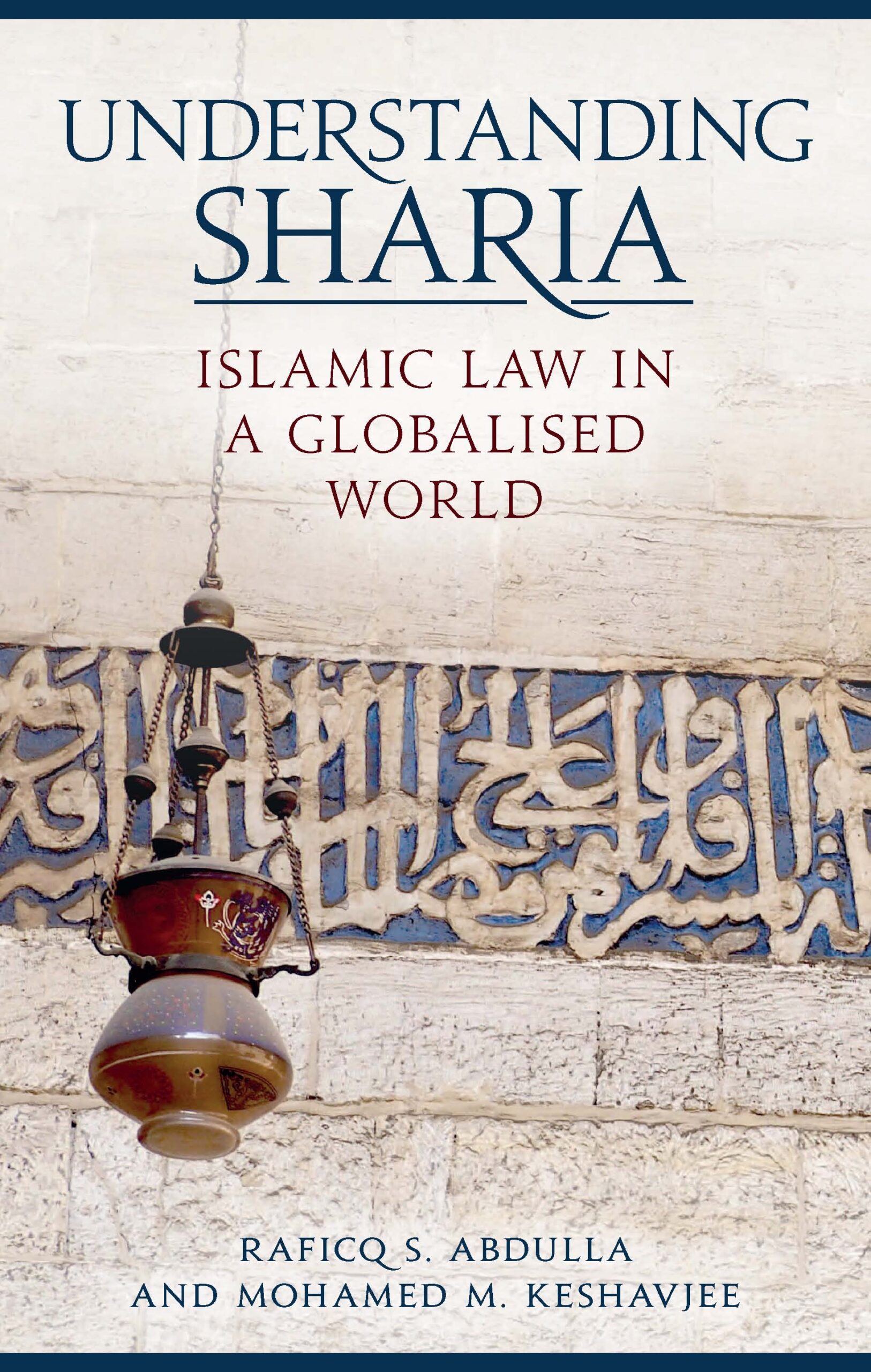Sharia has been a source of misunderstanding and misconception in both the Muslim and non-Muslim worlds. Understanding Sharia: Islamic Law in a Globalised World sets out to explore the reality of sharia, contextualising its development in the early centuries of Islam and showing how it evolved in line with historical and social circumstances. The authors, Raficq S. Abdulla and Mohamed M. Keshavjee, both British-trained lawyers, argue that sharia and the positive law flowing from it, known as fiqhThe science of Islamic jurisprudence., have never been an exclusive legal system or a fixed set of beliefs.
In addition to tracing the history of sharia, the book offers a critique concerning its status today. Sharia is examined with regard to particular issues that are of paramount importance in the contemporary world, such as human rights; criminal penalties, including those dealing with apostasy, blasphemy and adultery, commercial transactions, and bio-medical ethics, amongst other subjects. The authors show that sharia is a legal system underpinned by ethical principles that are open to change in different circumstances and contexts, notwithstanding the claims for ‘transcendental permanence’ made by Islamists. This book encourages new thinking about the history of sharia and its role in the modern world.
Preface and Acknowledgements
Introduction: Islamic Law in the Contemporary World
1. Sharia – Origin through Revelation, Historical Development and Change
2. Legal Practice under the UmayyadsFirst major ruling Muslim dynasty that was based in Damascus (661-750).
3. Consolidation of the Schools of Law under the AbbasidsMajor Muslim dynasty of Sunni caliphs that ruled in Baghdad (750-1258).
4. Developments after Shafi‘i
5. Further Geographical Expansion and Cultural Accommodation
6. Call for Reform – from Tanzimat to the Arab Spring
7. Shi‘i Legal Understanding and Theory of Law
8. The Multiple Manifestations of Sharia
9. Neo-Ijtihad
10. Sharia and Human Rights
11. Criminal Justice in Islam
12. Islam and Ethics
13. Critique
Glossary
Notes
Bibliography
Index
‘A valuable work, elegantly written raising issues which help to explain the ethical underpinnings of sharia and its workings in the modern world. It’s a book that should be read and reflected upon by both Muslims and non-Muslims.’
– Dr Maulana Shahid Raza Naeemi, OBE, Chair of MINAB (The Mosques and Imams National Advisory Board) and Executive Secretary and Registrar of The Muslim Law (Shariah) Council UK
‘I loved this book. It gives the reader an introduction to the thinking behind sharia, and the evolutionary nature of its interpretation. And it makes clear how different authorities at different times in history have had wholly different approaches. The fact that the law is not a terrifying, immutable, and uncompromising whole, but has to be interpreted by human beings, is strongly emphasised, and changes in interpretation and practice are well laid out. Everyone, Muslim and non-Muslim alike, can learn from this elegantly written, well researched volume.’
– Rabbi The Rt Hon The Baroness Neuberger DBE
‘Understanding Sharia is a thought-provoking yet accessible overview of one of the most misunderstood and contested concepts of our time. The authors raise the kinds of questions that can open a much-needed conversation and show why and how “Shari’a is always work in progress”.’
– Ziba Mir-Hosseini, Legal Anthropologist and Activist
‘Accessible, informative and wonderfully enlightening, this book is a must read for anyone, Muslim and non-Muslim, who wants to acquire an unprejudiced perspective on the meaning of sharia for today. The authors, refusing slavery to either lifeless literalism or unthinking relativism, introduce the reader to sharia’s contested origins and multiple cultural embodiments. They also point out continuing misapplications and relevancies for committed Islamic and wider critical consciousness. The book concludes with a trenchant plea for fresh thinking which has the potential for engaging sharia more flexibly and productively in the light of the many hitherto unimagined issues that are emerging in our globalised and interdependent world.’
– Revd Dr Alan Race, Theologian and Interfaith Specialist
Raficq Abdulla was a South African-born lawyer, writer, public speaker and broadcaster who read Jurisprudence at Oxford. He was called to the Bar at the Middle Temple in the 1960s. Latterly, he was a Visiting Fellow of the Faculty of Business and Law, Kingston University. He was also a founder member of the Advisory Panel of the Muslim Law Shariah Council (United Kingdom), and a trustee of the Poetry Society, Planet Poetry and of PEN. In 1999, he was awarded an MBE for his interfaith work among Muslims, Jews, and Christians.
Mohamed Keshavjee is a South African-born lawyer called to the Bar at Gray’s Inn in 1969. He completed his LLM at London University and his PhD at SOAS with a focus on Islamic Law and Alternative Dispute Resolution (ADR). He has practised law in Kenya, Canada and the United Kingdom. His first book, Islam, Sharia and Alternative Dispute Resolution deals with how Muslims engage with sharia, customary practices and the laws of the United Kingdom. He has spoken on ADR at conferences in Europe, North America and Asia, and has trained family mediators in the EU countries and imams and pastors in mosque and church conflicts in the UK and the USA, respectively. In 2016, he was awarded the ‘Gandhi, King, Ikeda Peace Award’ at the Martin Luther King Jr. International Chapel, Morehouse College in Atlanta, Georgia, for his work on peace and human rights education.

